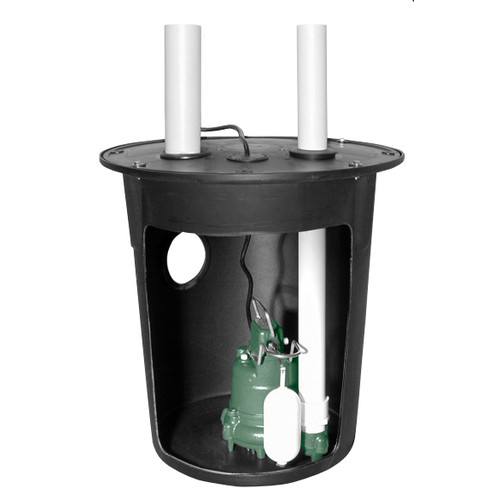Trustworthy Pump Repairs & Installation: Your Water supply's Lifeline
Trustworthy Pump Repairs & Installation: Your Water supply's Lifeline
Blog Article
Comprehending the Key Parts of Effective Water Filtering Equipments

Significance of Water Filtration Solution
Water filtration systems play an important function in guaranteeing access to safe and tidy drinking water by properly eliminating contaminants and contaminations. These systems are important in attending to the growing issues over water quality and the prospective health risks related to consuming contaminated water. By utilizing different filtering systems such as reverse osmosis, triggered carbon, and UV sterilization, water filtering systems can effectively remove damaging materials like bacteria, infections, heavy metals, and chemicals from the water system.
Additionally, water purification systems help to boost the preference and smell of water by eliminating chlorine, debris, and various other toxins that can influence its quality. Water Filtration Systems. This improvement in water high quality not just makes it a lot more palatable yet additionally motivates people to consume alcohol an adequate quantity of water daily, promoting better hydration and overall health
Sorts Of Filtering Components

Physical filters are developed to physically strain out pollutants from the water. These filters can be made from products like ceramic, carbon, or even sand, and they function by trapping fragments bigger than the filter's pores as water goes through.
Chemical filters use various chemical procedures to remove contaminants from the water. Examples include turned on carbon filters, which adsorb pollutants, and reverse osmosis membranes, which utilize pressure to separate impurities from the water.
Biological filters use living microorganisms like algae or bacteria to break down raw material and toxins in the water. These filters are often made use of in wastewater therapy plants or all-natural water purification systems.
Understanding the different kinds of filtration parts is crucial for picking the most suitable water purification system for specific purification demands.
Function of Debris Filters
Debris filters play a crucial function in water filtration systems by successfully catching strong bits suspended in the water. These filters are generally the initial line of protection in a filtering system, eliminating bigger particles such as sand, silt, dirt, and corrosion before the top article water moves with finer filtration stages. By capturing these debris, the filters avoid them from getting to downstream parts, therefore expanding the life-span and efficiency of the entire system.
The feature of debris filters is important in maintaining water top quality and shielding delicate equipment from damages triggered by debris. Furthermore, by removing noticeable bits, sediment filters boost the clarity and preference of the water. Regularly changing or cleaning up sediment filters is necessary to make certain ideal efficiency. Ignoring this maintenance can cause clogging, minimized water flow, and endangered purification efficiency. On the whole, sediment filters are crucial elements that add substantially to the efficiency of water purification systems.
Function of Turned On Carbon Filters
Playing a vital duty in water filtration systems, triggered carbon filters are crucial in eliminating pollutants and contaminants from the water system. These filters are designed to adsorb and trap a large array of pollutants, including chlorine, unstable organic compounds (VOCs), chemicals, and herbicides. The triggered carbon material has a large surface, enabling for the effective capturing of impurities via a procedure called adsorption. As water passes via the filter, the activated carbon holds and attracts onto the impurities, guaranteeing that the water that comes out beyond is cleaner and more secure for intake.
Turned on carbon filters are very efficient at enhancing the taste and smell of water by lowering chemicals that can influence its high quality. They are likewise with the ability of removing particular hefty steels like lead and mercury. look these up In addition, these filters can help avoid the buildup of microorganisms and algae in water, more improving its general quality. Due to their versatility and integrity, turned on carbon filters are a crucial component in ensuring that water is detoxified to the greatest standards prior to getting to consumers.
Comprehending Reverse Osmosis Equipments
Reverse osmosis systems are innovative water official source filtration systems that utilize an innovative procedure to remove contaminants and pollutants from alcohol consumption water. These systems work by applying pressure to the water, requiring it through a semi-permeable membrane.
One key advantage of reverse osmosis systems is their capacity to eliminate a wide variety of contaminants, including heavy steels, liquified microorganisms, solids, and viruses. This makes them very reliable in improving the overall quality and safety of drinking water. Additionally, reverse osmosis systems are relatively low-maintenance and can be installed under the sink or in a central filtration system, offering convenient access to clean water throughout the house. Overall, understanding how reverse osmosis systems work can help people make educated choices concerning their water filtering requirements.
Verdict
In verdict, efficient water filtering systems are important for making certain tidy and risk-free alcohol consumption water. The crucial elements of these systems include debris filters, triggered carbon filters, and reverse osmosis systems. By recognizing the function and role of each part, individuals can make informed choices when picking a water filtering system. It is essential to focus on the quality of water in order to advertise general health and health.
Water filtering systems play an important role in making sure access to clean and secure drinking water by effectively eliminating contaminants and pollutants. By using numerous filtration systems such as reverse osmosis, turned on carbon, and UV sterilization, water filtering systems can successfully eliminate dangerous substances like bacteria, viruses, heavy steels, and chemicals from the water supply.
Debris filters play an essential function in water purification systems by efficiently catching strong particles suspended in the water (Water Filtration Systems).Playing a vital duty in water filtration systems, triggered carbon filters are critical in getting rid of impurities and pollutants from the water supply.Reverse osmosis systems are sophisticated water purification systems that use a sophisticated process to eliminate pollutants and pollutants from alcohol consumption water
Report this page